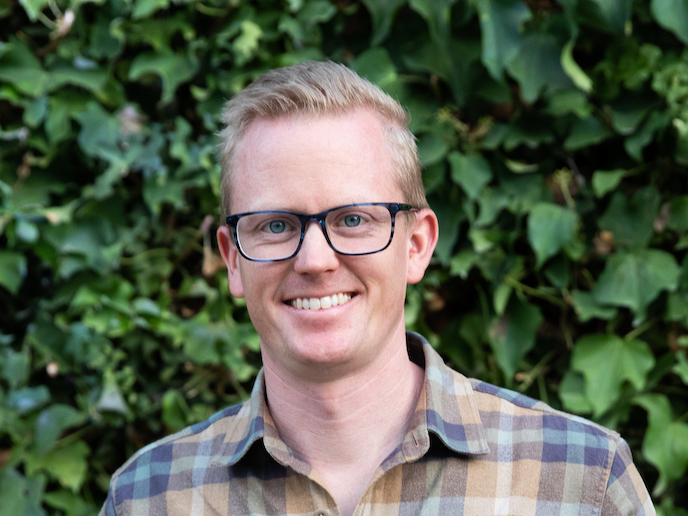Overview:
Kaj is leading the way in Australia in the application of Donut Economics to greater Melbourne through the Regen Melbourne initiative.
Kaj Löfgren is CEO at Regen Melbourne and Entrepreneur in Residence at Small Giants Academy.
What was your first job?
Basketball referee (!) and then humanitarian engineer with Engineers Without Borders.
When did you first discover the concept of Impact Investing?
I first discovered impact investing when I joined Berry Liberman and Danny Almagor to set up the Small Giants family office, more than 12 years ago. The language of impact investing was only just emerging in Australia and it was still seen as a very minor blip in the investment landscape.
In contrast, our work has always been framed as the holistic transition of capital from the old economy to the next economy. Taking a systemic view, this requires a 100%, whole of portfolio approach, to the movement of capital. We have always seen our role as potent catalysts for systemic transformation.
What is your vision or what do you wish for?
Regen Melbourne is an engine for ambitious collaboration, in service of our city. We host bold, collective projects that move us towards a regenerative future. As examples, we are collectively working towards a swimmable Birrarung Yarra River, ending food waste across the city, rejuvenating democracy through collective decision making, creating a wave of regenerative streets and building a new way of measuring holistic progress as a city (using Doughnut Economics). Powering this ambitious work is a growing alliance of more than 180 organisations.
Having worked across economic sectors, in the non-profit, business, philanthropy and investment communities, my vision is for us to take a more systemic and model-agnostic approach to social and environmental progress. The reality is that all our sectors are systemically compromised; business has short-term profit cycles, government has short-term electoral cycles, non-profits suffer from funding scarcity (and narrow focus areas as a result), impact investors largely still seek single-point solutions and financial return models that are not in line with systemic change, and the ability of individuals or households to actively organise in pursuit of systemic change are of course limited by time and cost-of-living pressures.
Given this context, our only way through our ecological crisis and our many social challenges is by finding new ways to work together across the usual sectors and siloes. This is what Regen Melbourne is ambitiously attempting to do!
My hope is that systemic convening becomes the norm in cities and towns around Australia, creating a new way for capital of all kinds to flow in service of a regenerative future.
What’s one exciting initiate or development you and your team have in the pipeline?
Regen Melbourne is acting as the engine for collaboration in service of a swimmable Birrarung Yarra River. The idea of swimming in the lower reaches of the Birrarung is of course not a new idea, but previous attempts have focused on single swimming activations rather than the many interlocking systemic barriers (and opportunities) to a regenerated river.
Taking a holistic approach to the Birrarung as a living entity and life-force for the city, we are convening actors around multiple workstreams, including storytelling & reconnection, water health, business & enterprise, policy & legal frameworks, campaigning, and swimming activations. By activating in this way, we are creating a new systemic view of the river system, identifying potent intervention points and working towards a holistically regenerated river system.
Ultimately, by changing some of the underlying conditions in and around the river, and by tapping into the many examples of similar projects around the world, we are very hopeful for the regeneration of the Birrarung.
Is there anything that annoys you?
There are increasingly sophisticated conversations, well-researched reports, and conference panels on the need for a maturing of our impact investing and philanthropic models beyond single-point investment and towards a more systemic view.
However, there remains is a glaring gap between words and action. As the recent Shifting Systems Initiative noted, “the persistent gap between language and action on systems change is not a skills, concepts, frameworks, or evidence problem. Rather, it is a mental models, power, and relationships problem”. In a similar way, this was described as the shift from “mouthset to mindset” in a recent piece by the Griffith Centre for Systems Innovation.
In order to mature our capital flows, we need to invest in new ways of organising, we need to invest in systemic convening rather than just single point solutions. Above all, we need to be way bolder in our investment and philanthropic mindset. Now is not the time for risk management and caution. We need to ambitiously experiment and learn together. We need a new and radical approach to capital flows in service of a living planet. Our urgent moment requires this of us.
Name one high impact company (local or globally) that investors should keep their eye on?
Regen Melbourne is working closely with Transformation Capital. Transformation Capital is a pioneer at the intersection of systems thinking and finance, developing a paradigm breaking approach to systemic capital, and prototyping with partners around the world (including with us on the Swimmable Birrarung initiative). I highly recommend diving into their white paper, their prototypes and joining their network of pioneers around the world.
What advice would you give to someone wanting to do this work?
In this increasingly unstable social, economic and political climate, I feel the most important personal and professional attribute is our ability to navigating uncertainty, hold complexity and maintain hope. This is incredibly difficult and a conscious daily practice, but essential for systemic work. Beyond the obvious training in systems thinking and regenerative practice, my way of holding this has been to find a tribe of humans who can support this navigation. When there isn’t a blueprint available, we need good humans around us to collectively find a way forward.

